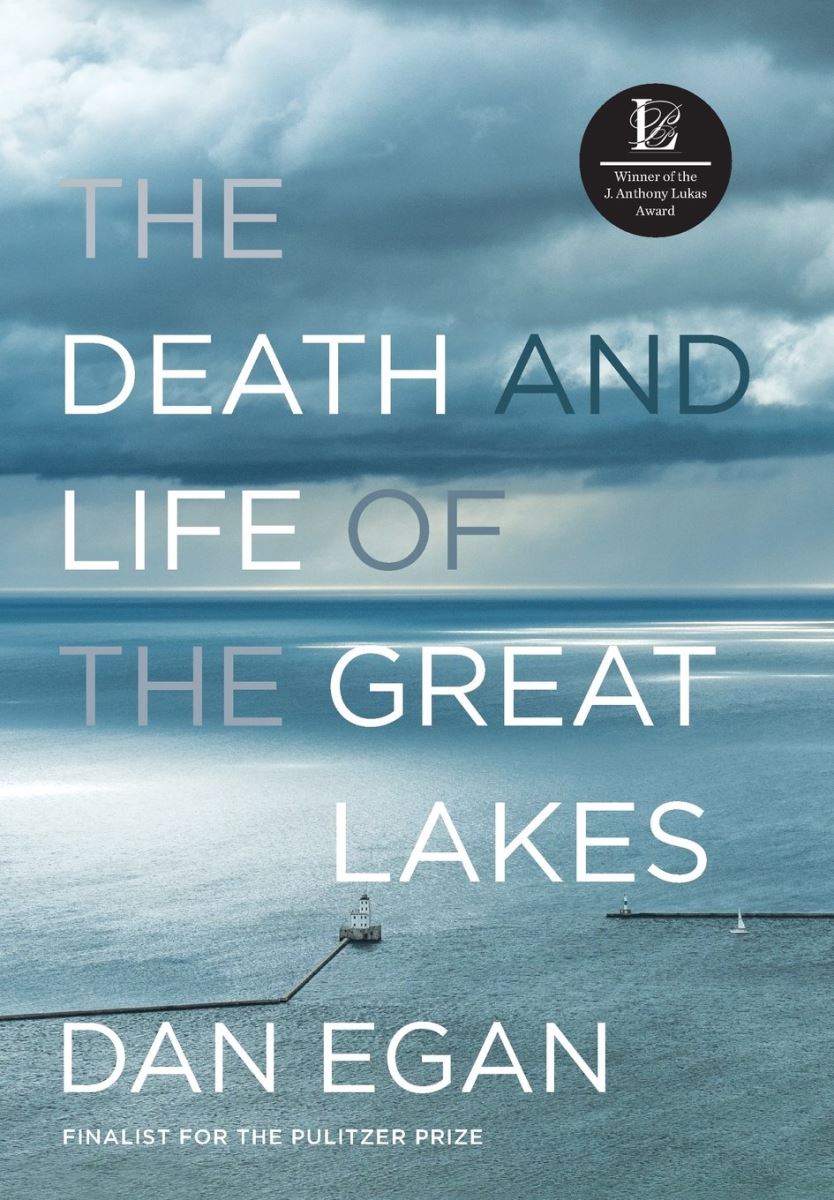This fall, Columbia University is launching the
Year of Water, an interdisciplinary investigation of water in all of its social, political, cultural, economic, and environmental complexities. As Columbia focuses on the importance of water, Columbia Journalism School's
Master of Arts Program is pleased to spotlight the work of 2012
Science Concentration graduate Dan Egan, a leading science journalist who is the author of the award-winning W.W. Norton book
The Death and Life of the Great Lakes.
 In The Death and Life of the Great Lakes, Egan explores the environmental threats facing the Great Lakes—Erie, Huron, Michigan, Ontario, and Superior—which hold 20 percent of the world’s supply of surface fresh water and provide sustenance, work, and recreation for tens of millions of Americans. His book, which won the Los Angeles Times Book Prize, the J. Anthony Lukas Work-in-Progress Prize, and the National Academies of Sciences, Engineering, and Medicine Communication Book Award, helps readers understand the ecological catastrophe happening right before our eyes, blending the epic story of the lakes with an examination of the perils they face and the ways we can restore and preserve them for generations to come. Click here to watch Egan discuss the book at the L.A. Times Festival of Books.
In The Death and Life of the Great Lakes, Egan explores the environmental threats facing the Great Lakes—Erie, Huron, Michigan, Ontario, and Superior—which hold 20 percent of the world’s supply of surface fresh water and provide sustenance, work, and recreation for tens of millions of Americans. His book, which won the Los Angeles Times Book Prize, the J. Anthony Lukas Work-in-Progress Prize, and the National Academies of Sciences, Engineering, and Medicine Communication Book Award, helps readers understand the ecological catastrophe happening right before our eyes, blending the epic story of the lakes with an examination of the perils they face and the ways we can restore and preserve them for generations to come. Click here to watch Egan discuss the book at the L.A. Times Festival of Books.
Egan is currently a reporter at the
Milwaukee Journal Sentinel and a senior water policy fellow at the University of Wisconsin-Milwaukee's School of Freshwater Sciences. He has twice been a finalist for the Pulitzer Prize, and he has won the Alfred I. duPont–Columbia University Award, John B. Oakes Award, AAAS Kavli Science Journalism Award, and J. Anthony Lukas Work-in-Progress Award.
The
Master of Arts Program's Science Concentration, of which Egan is an alumnus, is intended for students who already have professional journalism experience and would like to deepen and expand their knowledge about science and medicine. The Science Concentration seminar, led by professors
Marguerite Holloway and Pulitzer Prize winner
Jonathan Weiner, focuses on themes and ways of thinking that can be used to cover any scientific field, whether it’s health, technology or the hard sciences. Students get a landscape view, looking at history, patterns of discovery and innovation. The seminar emphasizes understanding the culture and practice of science, giving students the skills to interpret a peer-reviewed study as well as providing a clear understanding of the peer-review process, its origin and its challenges. The course places particular emphasis on writing creatively and compellingly, whether in a short news story or in a long piece of narrative nonfiction.
___________________________________________________
Please click
here to begin an application to Columbia for the 2020-21 academic year.
As you consider the possibility of furthering your career as a journalist at Columbia, please explore our
website to learn more about Columbia Journalism School's
faculty members,
course offerings, and
career development services.
At Columbia, a top-tier journalism education can be within financial reach. Please visit our website to learn about our
scholarship opportunities.
If you would like to make an appointment to speak with an admissions counselor or sit in on a class, please email us at
apply.journalism@columbia.edu.